The controversial and costly Nord Stream 2 pipeline is intended to carry natural gas from Russia to Germany. As it nears completion, European countries and the U.S. continue to disagree over the advantages and disadvantages – and possible security threats – of the pipeline.
We asked some of our transatlantic, Russia, and energy-focused experts to share their thoughts on the implications of the Nord Stream 2 pipeline for Europe's security and energy supply, transatlantic relations, and policy toward Russia, as well as what actions the U.S. and European countries should take at this point.
CATHRYN CLÜVER ASHBROOK, Executive Director, The Project on Europe and the Transatlantic Relationship, Future of Diplomacy Project
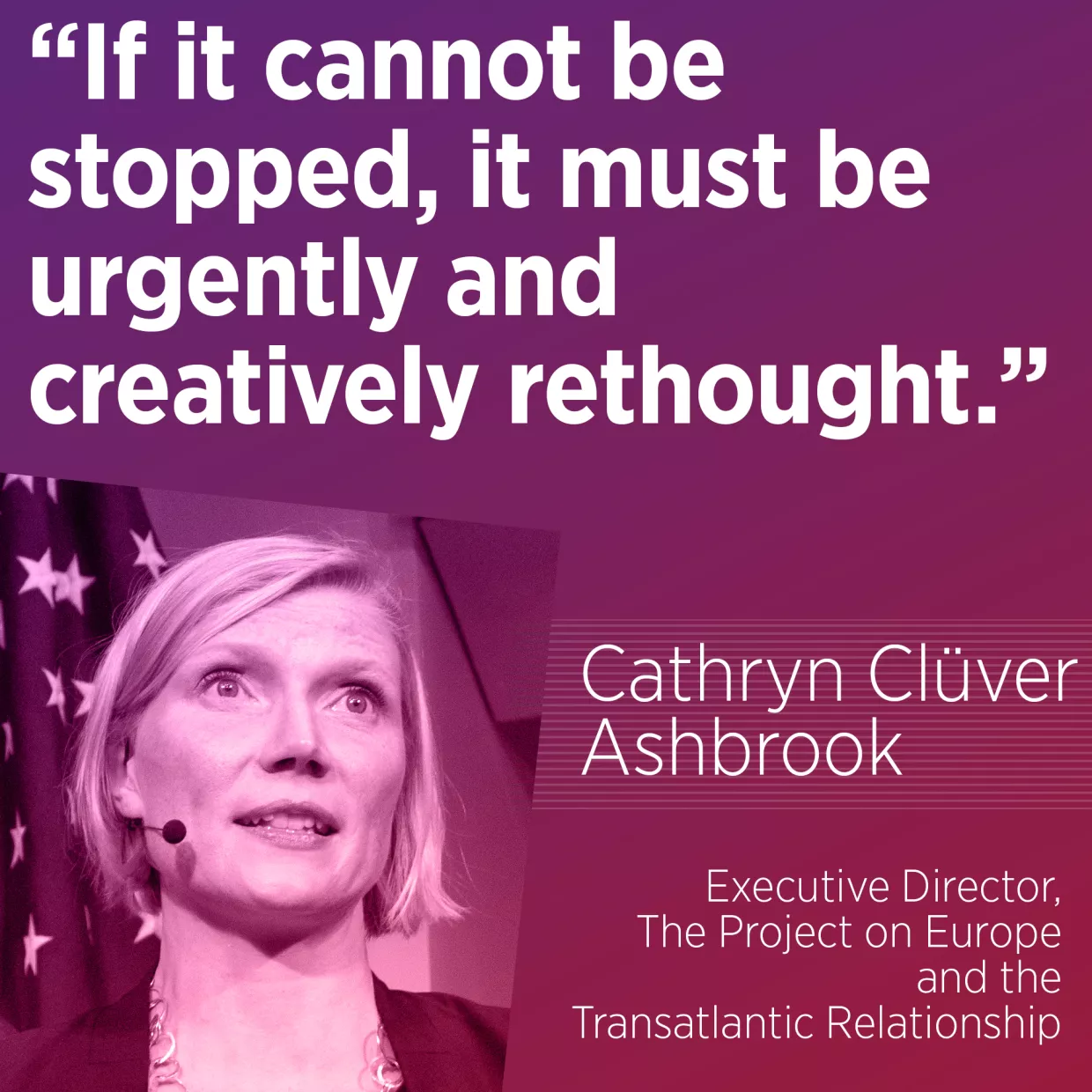
“Nord Stream 2 is a geopolitical mistake threatening hard consequences for Europe’s security, energy independence and cohesion facing an aggressive, authoritarian power in Russia. It is, above all, a German mistake that the Merkel government refuses to back away from fearing domestic legal and economic fallout, including reparation payments to investors. The project threatens to undercut efforts to rebuild the critical relationship between Germany and its American ally at a dangerous time.
If it cannot be stopped, it must be urgently and creatively rethought. Amelioration efforts might include snapback/shutdown mechanisms to prevent Russian manipulation; alternative and renewable energy investment and development in Ukraine; and strong EU oversight and application of energy regulations. Russian actions in Ukraine this past week indicate these efforts might not be enough to stop Putin’s overreach. Germany might well be forced to face a series of uncomfortable truths with major economic consequences, lest its decisions further endanger the continent.”
NICOLA DE BLASIO, Senior Fellow, Environment and Natural Resources Program / Science, Technology, and Public Policy Program
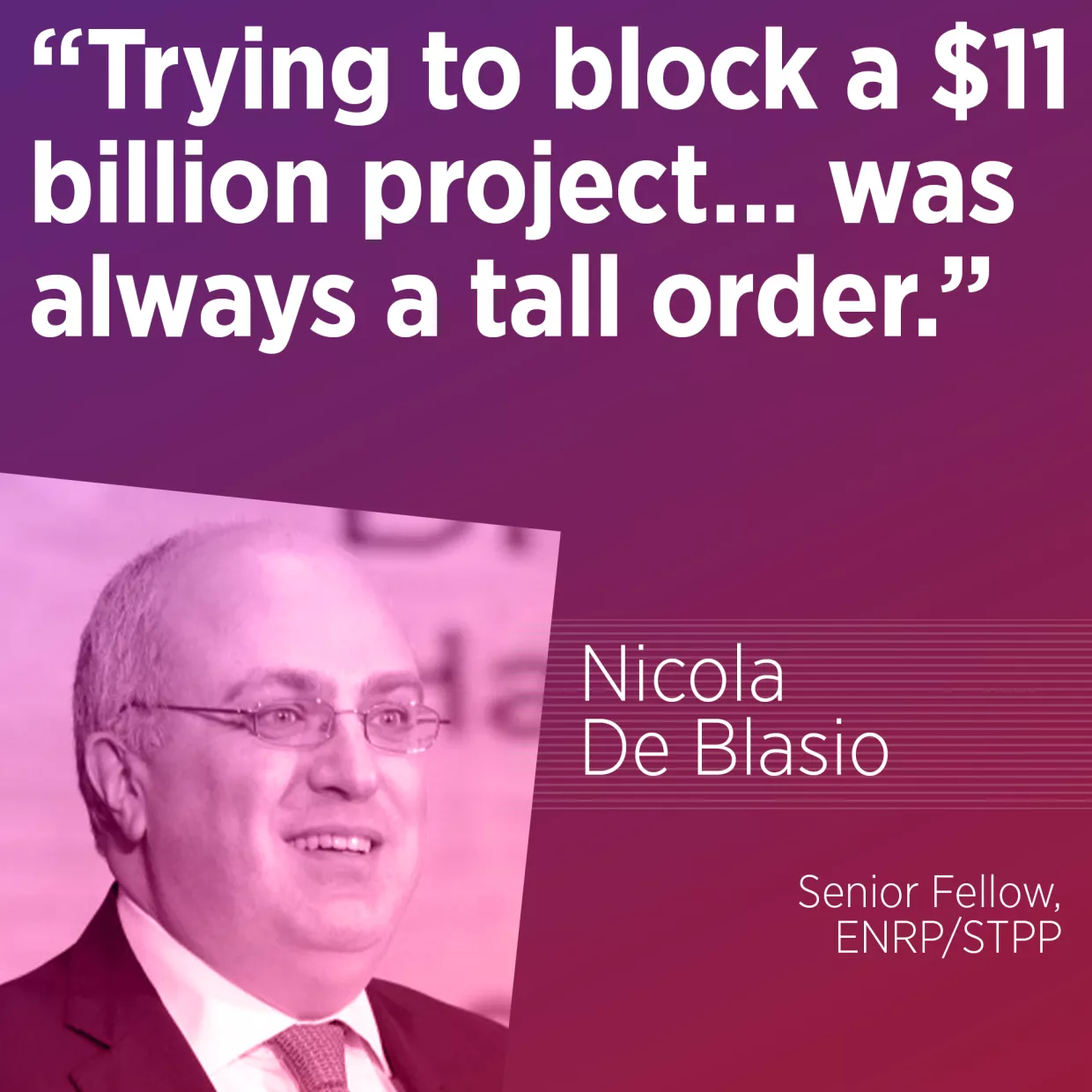
“Trying to block a $11 billion project, that will deliver up to 55 billion cubic meters of gas per year (1.9 trillion cu ft), was always a tall order. Even more so due to the fraught EU-US relations during the previous administration. With the project around 95% completed, the only realistic alternative is for the EU and the US to find a common path forward to address the geopolitical implications.”
KARL KAISER, Fellow, Project on Europe and the Transatlantic Relationship
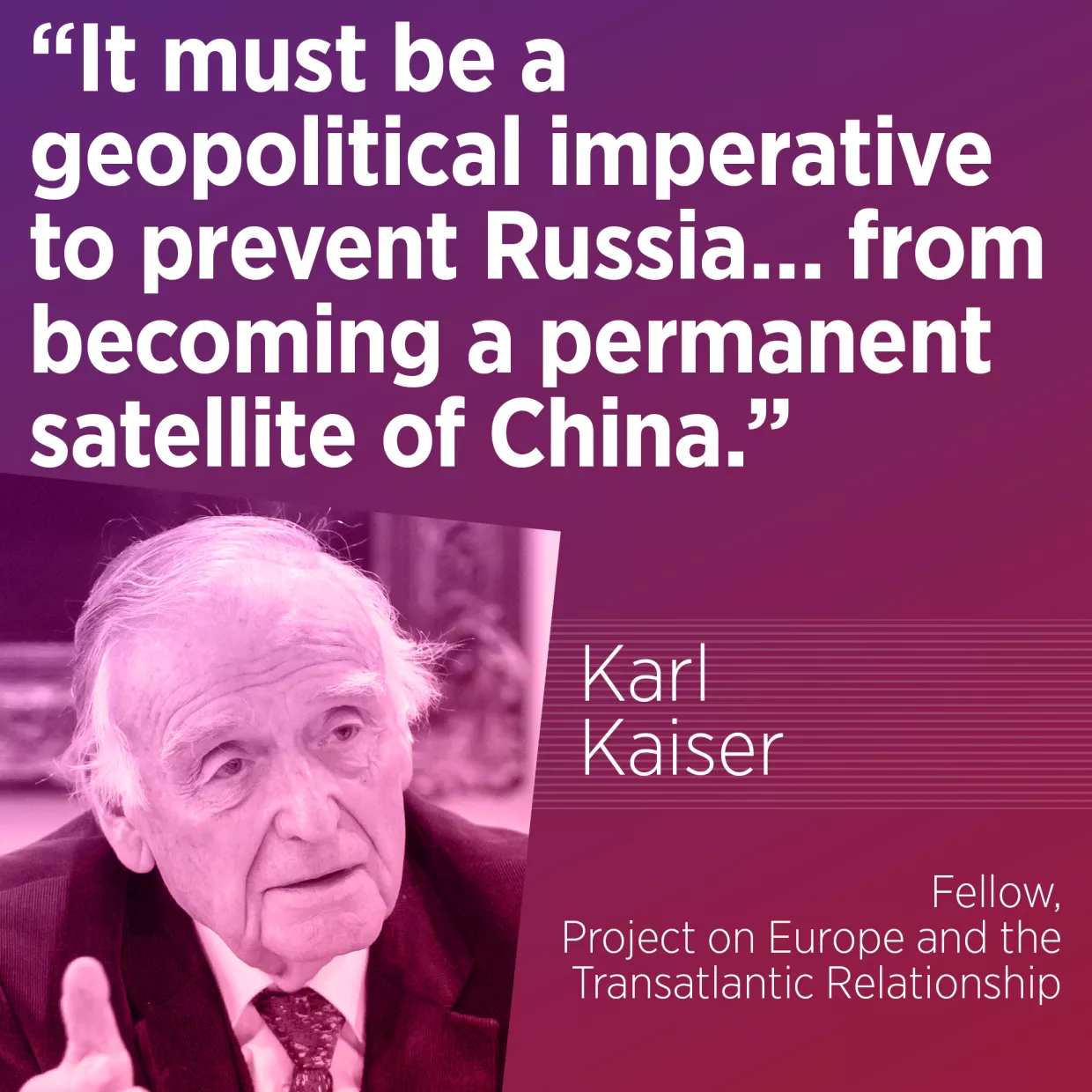
“As the conflict with China becomes the central issue of the West’s future it must be a geopolitical imperative to prevent Russia, the world’s largest country with all its resources, from becoming a permanent satellite of China. Nord Stream is one of the last working links of an economically declining Russia to Western Europe and few sources of income. It is more dependent on this revenue than Europe is on Russian gas supply. Nord Stream must become part of a broader US-European strategy that combines a shorter term policy to deal with Putin’s aggressive behavior, including support of Ukraine, and a longer term effort to keep open the option of a more cooperative relationship with Russia.”
SIMON SARADZHYAN, Director, Russia Matters Project
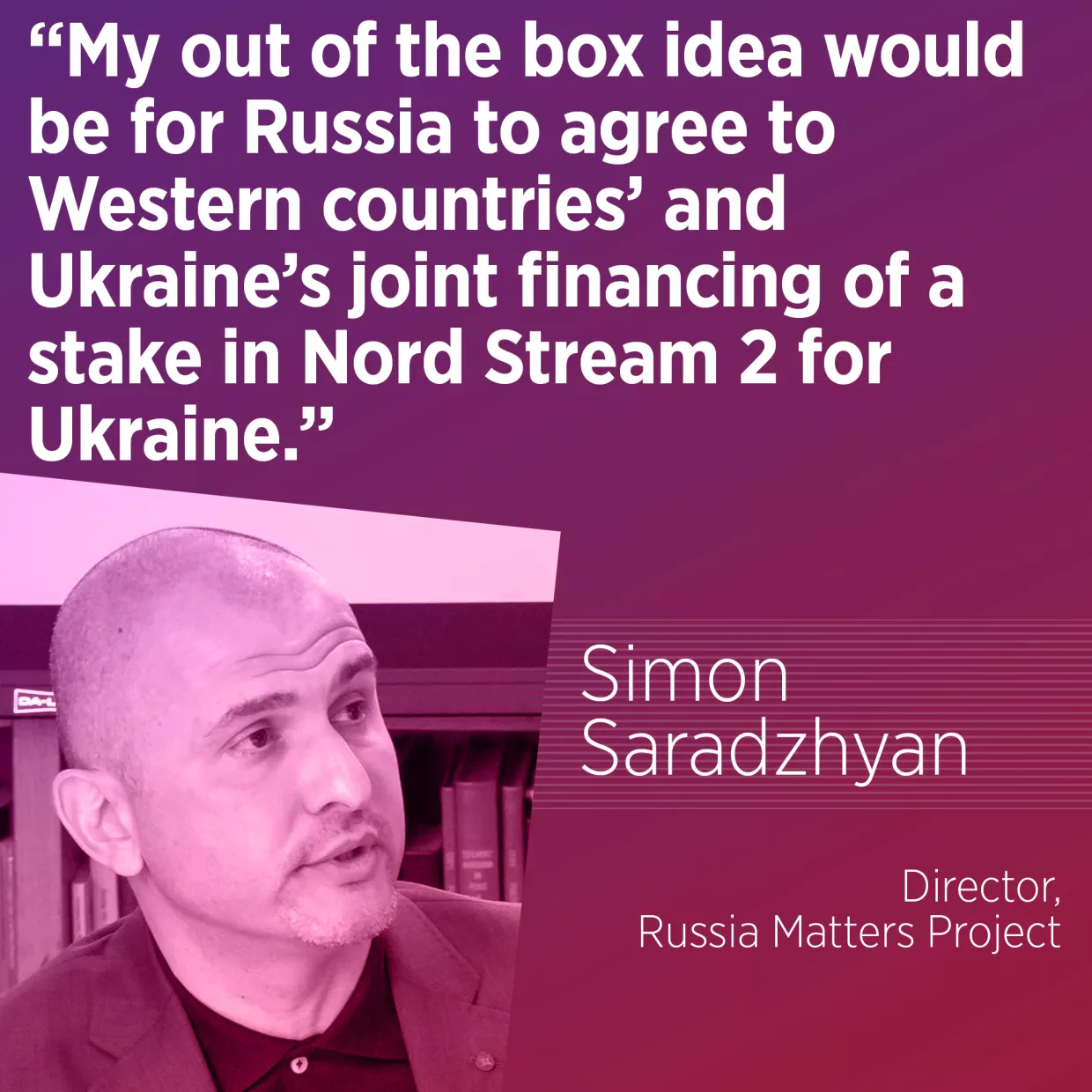
“Steven Pifer of Brookings has called for some “creative thinking” on how the dispute over this pipeline can be resolved in a constructive way that would benefit Ukraine among other stakeholders. My out of the box idea would be for Russia to agree to Western countries’ and Ukraine’s joint financing of a stake in Nord Stream 2 for Ukraine. The stake would not be large enough to allow Ukraine to disrupt operations of the pipeline, but would be large enough to ensure it receives a sizeable share of profits. In such a deal Russia would agree not to decrease deliveries and transit of gas through Ukraine below a certain level. That would guarantee Ukraine would not freeze in winter while also guaranteeing profits regardless of whether Russian gas to Northern Europe goes through Ukraine or NS2. This idea would be impossible to implement at the moment, given the current escalation of tensions between Moscow and Kyiv, but it could be something for sides to ponder if and when this escalation subsides.”
BENJAMIN L. SCHMITT, Postdoctoral Fellow, Harvard-Smithsonian Center for Astrophysics
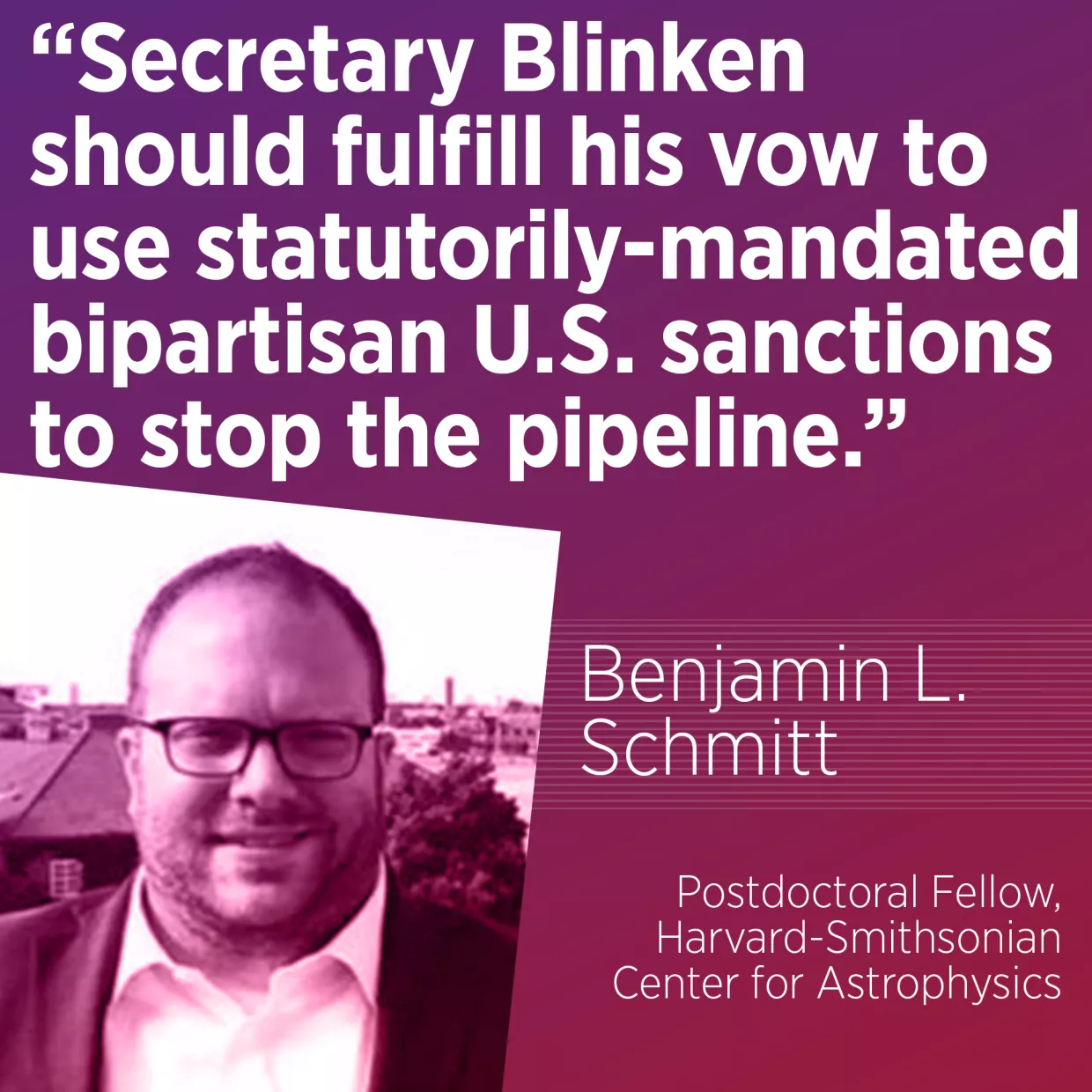
“Since now-President Biden declared the Kremlin-backed Nord Stream 2 pipeline a ‘bad deal for Europe’ in 2016, the project continues to pose a direct threat to Ukraine’s strategic stability, European energy security, and embodies Moscow’s weaponization of energy infrastructure investments for strategic corruption and Western elite capture. Barring a German moratorium, Secretary Blinken should fulfill his vow to use statutorily-mandated bipartisan U.S. sanctions to stop the pipeline. Once stopped, then a multilateral dialogue on the future of the project can begin and must include those most affected by the project across Central and Eastern Europe. The trial balloons for a Nord Stream 2 “deal” floated thus far, including a ‘shutdown mechanism,’ are fundamentally flawed: they retread constructs that have been unable to constrain Russian misbehavior in the European energy sector over the last decade and ask nothing of the Kremlin itself. Any future ‘deal’ on Nord Stream 2 would have to get real, verifiable behavior changes from Moscow for the pipeline to ever proceed.”
TORREY TAUSSIG, Research Director, Project on Europe and the Transatlantic Relationship
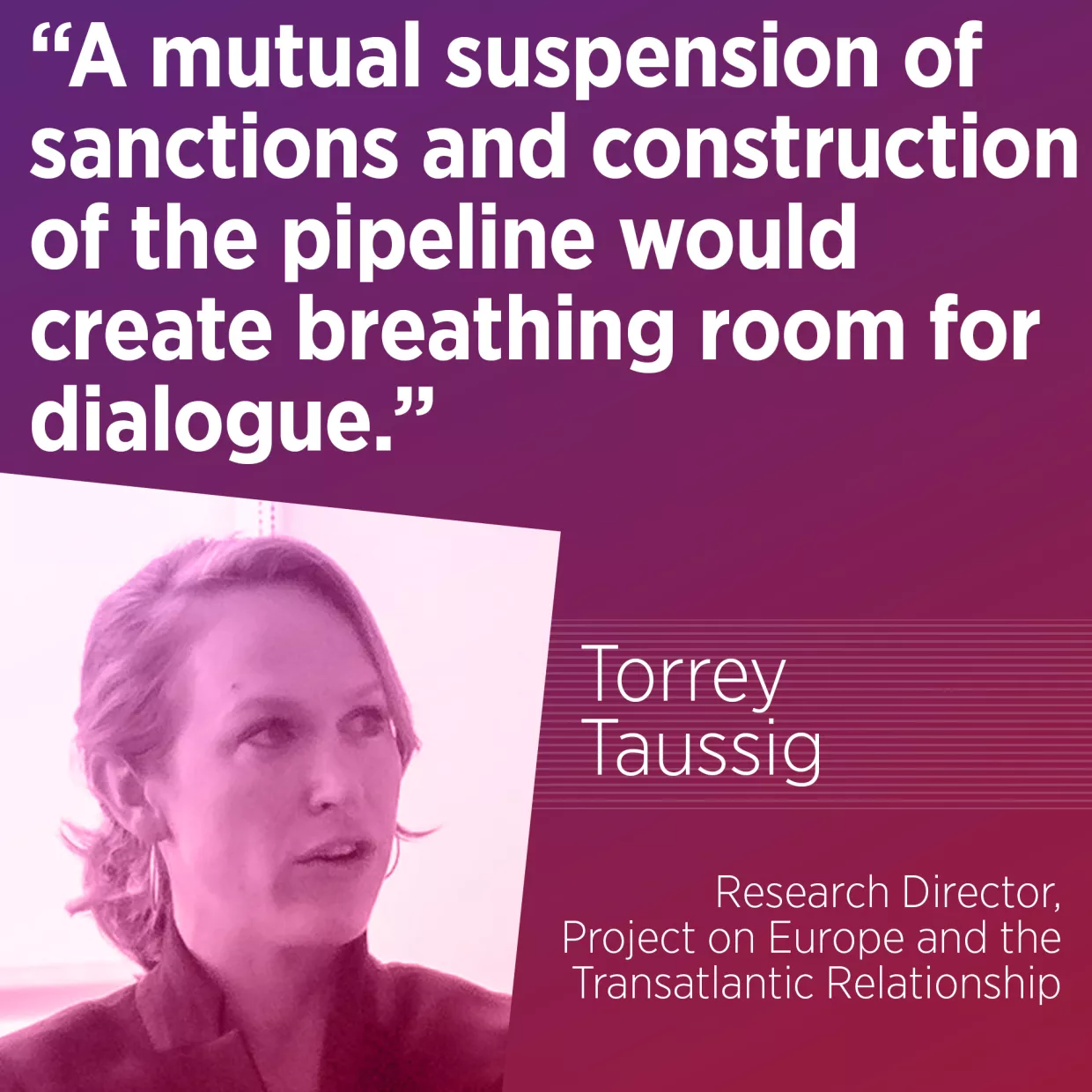
“The Nord Stream 2 pipeline puts the new Biden Administration between a rock and a hard place. On one side, there is bipartisan support in Congress to impose additional sanctions on entities involved in the pipeline’s construction. Republican Senator Ted Cruz has even delayed confirmation of Biden nominees to push the Administration to act. On the other side, there is pressure to rebuild ties with Germany and avoid creating additional fissures in the Transatlantic relationship. In the near-term, a mutual suspension of sanctions and construction of the pipeline would create breathing room for dialogue. But of greater importance is Transatlantic unity on Russia policy, as well as a longer-term solution to Europe’s energy supply that ensures diversification away from Russian sources and fossil fuels.”
